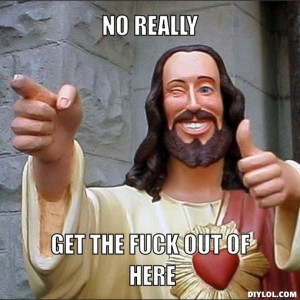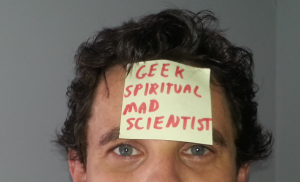Recently, I posted an article to Facebook, saying how I sometimes feel isolated because of my mysticism, spiritual use of drugs and drug law reform activism, none of which are well understood by many people I meet. At times, I’ve experienced such occasions as being “me against the world”, with little support from those around me, or those who “should” be there for me.
I summed it up by saying that, at times I feel like like being “Tank Man” from the Tiananmen Square.
Needless to say, despite my concluding in the post that, “I am not Tank Man, because I have the support of the people who matter (thankfully, I am blessed with having some amazing people in my life) and the laws of the land”, I was immediately pilloried for having the temerity to even compare myself with someone as outstandingly and anonymously brave as Tank Man.
Ironically, this put me right back in the space where I once again felt like Tank Man. In mindlessly going on the attack, they had simply reinforced the feelings and imagery that I was attempting to disown. Their actions made it clear just how few people really understand, or even care, what it can be like to take the path I have chosen.
Over the last Easter holiday break, while camping (as in homeless) with my dog, Saasha, I introduced myself to a group of adults in their early forties. Discussion got around to tents and I mentioned that I had bought the one I presently own in order to attend raves and doofs and would preferably use a smaller one for camping. Without any prompting on my part, they asked specifically if I used drugs while at these events and I said that I did. The response was typically hostile, as they then began to lecture me on how I should “grow up” and asked “at what point do you start to take responsibility for your life?”.
This was especially ironic and hypocritical, because going to dance parties and taking drugs was something that they admitted to doing in their mid twenties. Doubly so, because as they were lecturing a complete stranger (they’d known me all of 30 minutes by then) on being irresponsible, they were busily sucking down on the most dangerous drug of all: Alcohol.
In my mid twenties I already had already completed four years of full time Army service (ironically enough, as a tank soldier). Despite using cannabis prior to enlistment, I made a commitment to stop using illicit drugs of any kind when I joined and maintained that commitment throughout my service.
So instead of being out, partying and taking drugs, I chose to put place myself in a highly disciplined, regimented environment, where I spent my time training and being ready to put my life on the line in defence of their sorry, judgemental arses.
In rejecting me because I am a drug user, or have been arrested for the possession of a drug, people aren’t judging me for who I am and what I represent, but instead because of something I do that has zero impact upon them.
That is sad, on so many levels!
Knowing the friend who sent the text, I understand that their response is based on fear. They’ve never even linked to me on Facebook, because they were afraid of being seen by friends and family as being associated with a “druggie”. Similarly, last year a potential girlfriend said (after admitting that she was attracted to me), “my friends would never understand me going out with a drug user”.
This is the reality of the stigma that people like myself experience on a daily basis. But the oppression inherent in this attitude poisons the lives of literally millions of Australia’s illicit drug users, who have yet to come out about their life choices and have instead chosen to live their lives in the shadow of their fear.
But fear works both ways and it is the worst thing to give into. I say this after having spent decades of my life allowing my fears to dominate who I was, and who I could become.
Certainly, in many ways, I always been far less fearful than many of my peers, doing things such as joining the army, rappelling from tall buildings and any one of a number of stupid and dangerous things that could have gotten me killed.
But when I look back at my life until even a couple of years ago, I my experience is of a man paralysed with fear in so many different ways, especially when it came to relationships and friendships. By far, the emotion that has lead to the worst regrets of my life has been fear. Inevitably it seems that when I’ve acted badly towards others, the underlying problem has been a because I was afraid that if I communicated, or acted honestly, I would be rejected or hurt.
Without my even realising it, FEAR ruled the first 40 years of my life. So, I never discovered that if we never face our fears, we never learn that they are figments of our imagination, rather than actual slices of reality.
And then one day, during 2010, I felt “Enough!”
I was sick of pretending to be someone who I wasn’t, so went public about who I really was. For once, I faced my fear. But in facing my fear, I discovered my True Self!
I discovered that giving into the fear is the one thing that gives them power over us. Once we challenge them, we discover that, while they contain a hint of truth, fears are most often illusions of our own creation. Once we see them for the trap they are, we can see that there is a reality that we can create that exists beyond those fears.
And it is Beautiful! 🙂
Ironically, much of what I had feared has come to pass. I am unemployable in my chosen profession (counselling; who wants a counsellor who is a “druggie”?) and unable to complete a Masters degree in Psychology. I have been rejected by some of those who I cared about the most. At times, I have felt more isolated than I could ever have imagined.
But, despite everything, my life has a story and that story is filled with meaning and purpose. Intriguingly, despite all the setbacks, I’ve never once doubted that my path is the one that I am supposed to be on and that the story I am telling, through my actions and deeds, is one that needs to be told.
But fear isn’t something that ever disappears. Like some terrible phoenix, new fears always arise out of the ashes of the old. My recent fear of getting arrested was only the latest to crumble before the reality of its occurrence. My fear of going to prison shimmers before me and who knows what other fears will loom ahead?
The difference between who I was and who I am today is that I recognise that to give into fear is to give up hope and to give up growth. Today, I’m so poor that church mice lend me money (banks stopped doing that ages ago…) and things are often very difficult, but my life has been enriched in ways that even I still don’t fully understand.
Granted, I’m hardly the poster child for not allowing your fears to govern your life. But if it came down to a choice between being isolated because of who I am and what I believe, or living a life of fear and lies, I am more than happy to be the man in my shoes!
Fear robs us of far more than the opportunities to enrich our lives through facing the challenges life throws at us.
By giving into fear, people like my friend who sent the text, are going to spend their Eternity never being friends with the truly admirable people who have been arrested because they sought to stand up for freedom from oppression. Without the courage to confront their fears, such people will dump some of the greatest human beings in their lives and will be diminished accordingly.
My friends will never allow themselves to know Nelson Mandela, Rosa Parks, Martin Luther King Jr, Lady Constance Georgina Bulwer-Lytton, Martin Niemoller**, Ghandi, or any of the millions of wonderful, but nameless people I could mention, if only history had bothered to record their sacrifice. Heck, more than half the world’s population literally worship a guy who got arrested!
Now, lest should the mindless hordes of Social Media take offence that I should be comparing myself to these great people, I would simply say that as of 19 April, 2016, I now share with each of these worthies the distinction of having being arrested in the course of fighting against bigotry and for freedoms that others in my society already enjoy.
However, my courage in doing so is greatly diminished by the obvious fact that unlike each of these people, I am not fighting a dictatorial system and it is highly unlikely that anyone is going to beat, or kill me (although I have been abused on several occasions) for standing up for freedom. So, no in the courage department, I am definitely not in the league of these great men and women.
However, the point of this post isn’t to bitch about how poorly some people might treat me***, nor is it to bask in the glow of other’s achievements. Its not even about trying to convince others to “come out of the closet” and join me in openly, honestly and fearlessly proclaiming who they are (Although that wouldn’t be such a bad thing if we all went public. They can’t arrest 15% of the population!)
Rather, I simply seek to point out the truth that if you allow your fears to rule your life, you’ll be missing out on the very best that Eternity has to offer.
In 2012, before I began my 28 day hunger strike one of my former colleagues said that she despaired for what had happened to me and my career in the two years since I had gone public. She asked me what I would think if on my deathbed I looked back and all I had to show for my life was failure and unfulfilled potential.
My reply was that if I were on my deathbed, my biggest regret would be if I lived the “normal” life, because I was rendered inert by my fears and failed to take the difficult path that I knew in my heart to be the right one.
A life worth living isn’t a life of popularity, ease, wealth, or even “success” however it is defined by society, or even the self. It is a life of meaning and purpose, spent facing down your fears and finding the strength to overcome the challenges that are inevitably thrown your way. Live your life being controlled by your fears and you’ll not only be living a life not of your own choosing, but you’ll never have the courage to see the very best of yourself and your own potential for greatness.
Facing your fears is risky for all sorts of reasons, but do you really want to spend Eternity trapped inside them? Doesn’t that sound a lot like Hell?
So, in the words of Susan Jeffers “Feel the fear and do it anyway”! ****
*NOTE: As of the time of this writing, I do not actually have a “criminal record”. While I have been arrested and charged with the possession of LSD, any conviction is months, or even years away.
**Niemöller is perhaps best remembered for the quotation:
First they came for the Socialists, and I did not speak out—
Because I was not a Socialist.
Then they came for the Trade Unionists, and I did not speak out—
Because I was not a Trade Unionist.
Then they came for the Jews, and I did not speak out—
Because I was not a Jew.
Then they came for me—and there was no one left to speak for me.
***OK. Maybe just a little! 😉
****Ironically, I read this book when it first came out and have spoken about it endlessly with dozens, if not hundreds of people, without ever realising just how little I had grasped its true meaning. Or perhaps I did, but was far too successful a hypocrite to ever notice my own lies to myself.








